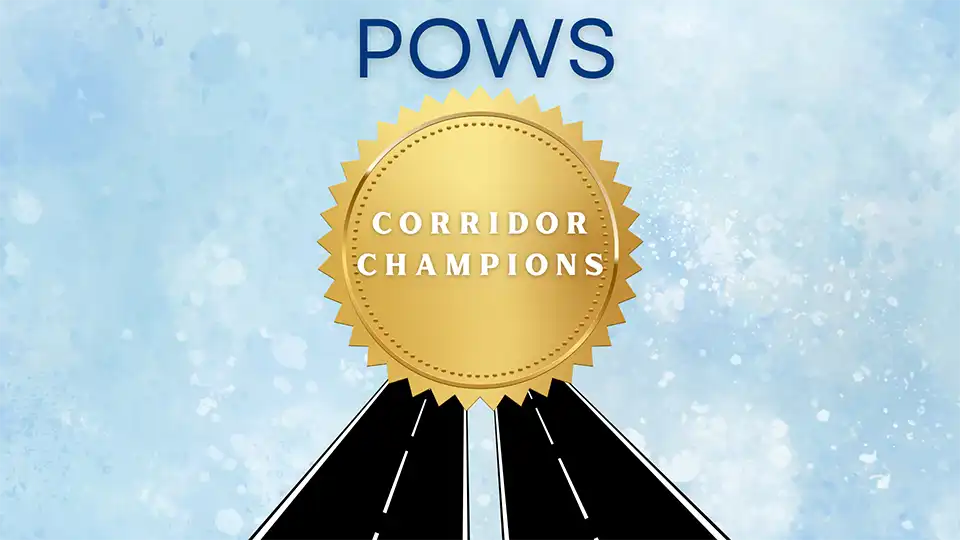During recent Orange County District 2 Quarterly Leader’s Meetings, participants from the People of Wekiwa Springs (POWS) have been gathering with area leaders to discuss the corridors surrounding their community’s main thoroughfares and roadways and how to most effectively improve those crucial arteries to best serve their communities.
Recognizing the corridors’ critical role in the fabric of our daily lives is essential. Each corridor serves as a conduit for vehicular traffic and shapes our neighborhoods’ character and functionality, impacting everything from safety and accessibility to economic vitality and environmental sustainability.
The goal of volunteers from throughout the area coming together is to draw upon each community member’s collective wisdom and experiences to identify successes and areas for improvement within our corridor infrastructure. By engaging in this conversation, we can leverage the strengths of our community while also identifying opportunities for volunteer involvement and government action to address pressing issues.
It’s crucial to recognize that our corridors are more than stretches of asphalt; they are dynamic ecosystems influenced by many factors, including urban development, transportation policies, and community engagement. Therefore, as we approach this discussion, we do so with a spirit of cooperation and a shared commitment to enhancing the quality of life for all residents.
Throughout any dialogue about our corridors, we will always want to keep in mind these ten groups in which to catalog topics we choose to explore:
- Safety and Accessibility: Ensuring our corridors are safe and accessible for all users, including pedestrians, cyclists, and motorists.
- Infrastructure Maintenance: Addressing the maintenance needs of our corridor infrastructure, from road surfaces to sidewalks and signage.
- Community Engagement: Enhancing opportunities for community engagement and participation in corridor planning and decision-making processes.
- Traffic Management: Managing traffic flow and congestion to improve efficiency and reduce commuter travel times.
- Environmental Impact: The goal is to minimize the ecological impact of corridor development and maintenance. Considerations such as addressing litter, promoting community beautification efforts, stormwater management, and green infrastructure are essential components of sustainable corridor management.
- Economic Development: Supporting local businesses and fostering economic growth along our corridors through strategic planning and investment.
- Public Transit and Alternative Modes of Transportation: Promoting public transit and alternative modes of transportation to reduce reliance on single-occupancy vehicles.
- Land Use Planning: Integrating corridor development with broader land use planning initiatives to create cohesive and sustainable communities.
- Equity and Social Justice: Ensuring that corridor improvements benefit all members of our community, particularly those from underserved or marginalized populations.
- Technology and Innovation: Exploring opportunities to leverage technology and innovation to enhance corridor efficiency and sustainability.
Do You Have Ideas?
Together, we can work towards creating corridors that are not only functional and efficient but also vibrant, inclusive, and resilient.
Please share your perspectives, insights, and ideas as POWS seeks to explore these topics more. You can email us at info@wekiwa-springs.com, or feel free to join us to attend one of the POWS monthly community meetings.
Key Questions:
Here are some questions you may want to consider using to help guide the discussion in identifying areas for improvement and opportunities for community involvement.
Safety and Accessibility:
- What are the most pressing safety concerns along our corridors?
- How can we improve accessibility for pedestrians and cyclists?
- Are there specific intersections or crossings that pose significant safety risks?
Infrastructure Maintenance:
- What maintenance issues do you frequently encounter along our corridors?
- How can we prioritize maintenance needs to ensure the longevity of our infrastructure?
- Are there opportunities for community-led maintenance initiatives?
Community Engagement:
- How can we increase community involvement in corridor planning and decision-making?
- What barriers exist to meaningful community engagement, and how can we overcome them?
- Are there successful examples of community-driven corridor projects in other communities?
Traffic Management:
- What are the primary causes of traffic congestion along our corridors?
- How can we improve traffic flow and reduce congestion?
- Are there opportunities for innovative traffic management solutions?
Environmental Impact:
- What are the most common sources of litter along our corridors, and how can we address them?
- How can we promote responsible waste disposal and discourage littering behavior within our community?
- How can we minimize the environmental impact of corridor development and maintenance?
- Are there opportunities for incorporating green infrastructure along our corridors?
- What stormwater management challenges do our corridors face?
Economic Development:
- How can corridor improvements support local businesses and economic growth?
- Are specific areas along our corridors ripe for economic development?
- What role can community-led initiatives play in supporting economic development?
Public Transit and Alternative Modes of Transportation:
- How can we encourage public transit and alternative modes of transportation?
- What improvements are needed to make public transit more accessible and convenient?
- Are there opportunities for community-led transportation initiatives?
Land Use Planning:
- How can we integrate corridor development with broader land use planning efforts?
- What land use challenges do our corridors face, and how can they be addressed?
- Are there opportunities for community-led placemaking projects along our corridors?
Equity and Social Justice:
- How can corridor improvements address our community’s equity and social justice concerns?
Technology and Innovation
- Are there specific innovations or advancements in transportation technology that could benefit our community?
- What role can data analytics and real-time monitoring play in corridor management and maintenance?
- Are there opportunities for integrating intelligent infrastructure solutions, such as sensor networks or adaptive lighting, along our corridors?
- How can we ensure that technology and innovation efforts are inclusive and equitable, benefiting all members of our community?

